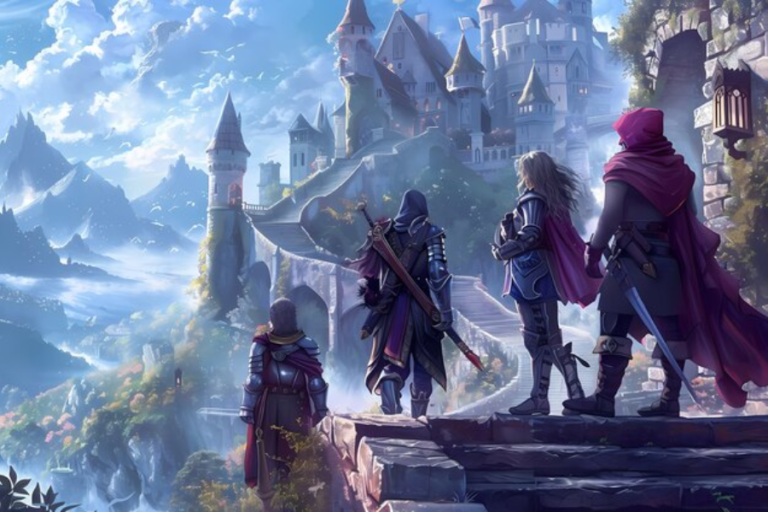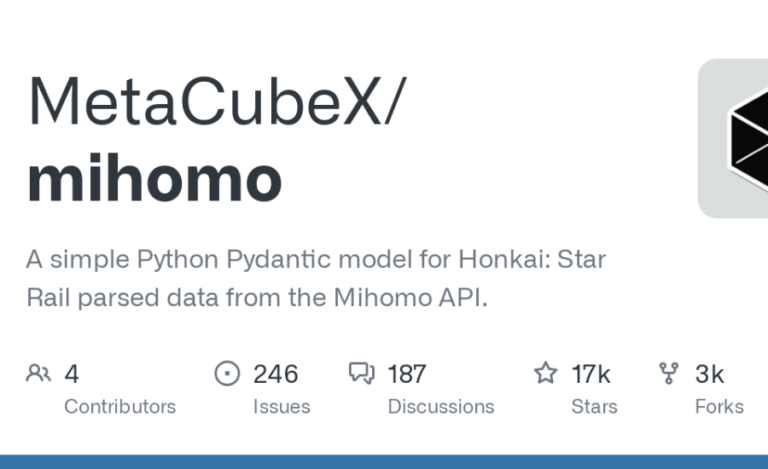What Does Absolute Junk Nyt Mean in Crosswords?
Crossword puzzles have long been a beloved pastime, engaging countless enthusiasts with their challenging, thought-provoking clues. One phrase that regularly catches solvers’ attention is “absolute junk nyt.” This seemingly straightforward term often signals a slang-infused hint that requires knowledge of casual or colloquial language, adding a layer of complexity to the puzzle. In the context of the New York Times (NYT) Crossword, clues like “absolute junk” tend to point toward words synonymous with “worthless” or “low-quality” items. Here, we’ll not only reveal the answer to this tricky clue but also explore its meaning and share strategies to tackle similar crossword challenges.
The Answer to the Clue Absolute Junk Nyt in NYT Crosswords

On April 27, 2024, the NYT Mini Crossword featured the clue “absolute junk,” leaving many solvers scratching their heads in confusion due to its ambiguous nature. The answer to this puzzling clue is DRECK. Originating from Yiddish, dreck translates to “rubbish” or “something of poor quality.” This term has found its way into the English language, often used to characterize various items, media, or situations that are considered trivial, worthless, or devoid of merit. The incorporation of such slang into crossword puzzles not only adds a layer of challenge for solvers but also reflects the evolving nature of language, illustrating how cultural expressions can enhance our vocabulary. Understanding terms like dreck allows crossword enthusiasts to appreciate the cleverness behind the clues and improve their overall puzzle-solving skills. In a world where many words are discarded as mere filler, recognizing dreck as a valid and vibrant part of our lexicon underscores the richness of linguistic diversity. As solvers encounter clues like absolute junk nyt they are reminded of the playful yet thought-provoking nature of crossword puzzles, which invite them to explore the depths of language and its informal expressions.
Possible Answers For Similar Absolute Junk Nyt Clues

The NYT Crossword frequently incorporates a variety of synonyms and related expressions to keep solvers engaged and challenged. For clues that convey a similar sentiment to “absolute junk,” several alternative answers can come into play, each with its own unique nuance:
- SPAM: This term commonly refers to unwanted or unsolicited emails, epitomizing digital clutter that inundates inboxes. In the context of a crossword, it captures the essence of items considered worthless or annoying.
- HARDPASS: A modern slang expression, hard pass conveys an emphatic “absolutely not.” It suggests a strong rejection of low-quality or undesirable items, making it a fitting response to anything deemed unworthy.
- NONSENSE: Often used to describe statements or ideas lacking logic or sense, nonsense signifies a dismissal of something as frivolous or meaningless. This term adds an element of critique to the notion of junk, indicating that not only is it worthless, but it also fails to hold any intellectual merit.
- NOPE: A straightforward and curt response, nope signifies a complete lack of interest or enthusiasm. It encapsulates the essence of refusal, making it a suitable alternative when responding to clues that imply rejection of something undesirable.
Tips For Improving Your Absolute Junk Nyt
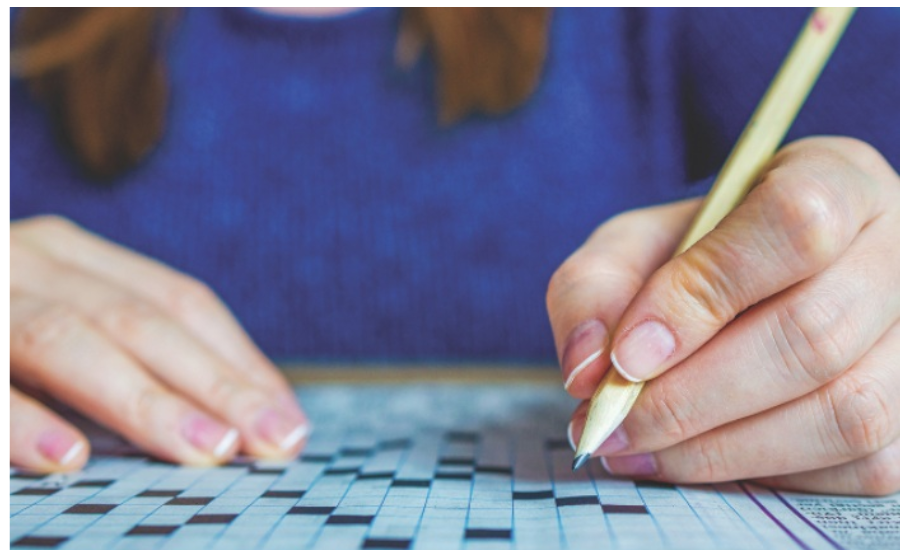
If you’ve ever found yourself stumped by a clue like “absolute junk,” rest assured that you’re not alone! Crossword puzzles can be challenging, but with the right strategies, you can enhance your solving skills and boost your confidence. Here are some expert tips to help you elevate your crossword-solving abilities:
- Practice Makes Perfect:As with any skill, crossword-solving gets better with consistent practice.Regularly tackling puzzles helps you identify recurring patterns, common phrases, and frequently used words. Consider setting aside a few minutes each day to work on a puzzle, gradually increasing the difficulty as you become more comfortable.
- Enhance Your Vocabulary: Expanding your vocabulary is essential for crossword success. Make a habit of reading widely across different genres—fiction, non-fiction, newspapers, and magazines. This exposure will introduce you to new words, slang, idioms, and cultural references that often appear in crossword clues.
- Utilize Cross-Referencing: When faced with a challenging clue, don’t hesitate to look at intersecting answers. The letters from these intersecting words can provide valuable hints that help you fill in the blanks. By leveraging cross-referencing, you can unlock tricky clues and gain confidence in your answers.
- Stay Current: Many crossword puzzles, particularly those from the NYT, draw from current events, pop culture, and historical references. Keeping up with news, entertainment, and cultural trends will give you an edge in solving clues that require contemporary knowledge. Consider following news outlets or popular culture podcasts to stay informed.
- Engage with Other Enthusiasts: Joining crossword communities or forums can significantly enhance your solving experience. These platforms allow you to connect with fellow enthusiasts who share tips, strategies, and insights. Engaging with a community can also provide support when you encounter particularly challenging puzzles, making the process more enjoyable.
- Explore Different Puzzle Formats: While the NYT Crossword is a favorite, don’t shy away from exploring other formats, such as cryptic crosswords or themed puzzles. Each type offers unique challenges and can broaden your problem-solving skills.
The Importance Of Absolute Junk Nyt
Crossword puzzles are not merely a leisurely pastime; they offer a wealth of benefits that extend far beyond entertainment. Regularly engaging with these word games can significantly enhance cognitive abilities and promote emotional well-being. Here are some key benefits of incorporating crossword puzzles into your routine:
Cognitive Benefits Absolute Junk Nyt
- Mental Stimulation: Solving crosswords provides a workout for the brain, which is essential for maintaining cognitive health as we age. Regular mental challenges can help improve memory, increase attention span, and sharpen critical thinking skills. The act of deciphering clues requires active engagement, which keeps the brain alert and functioning at its best.
- Improved Vocabulary: Crossword puzzles are an excellent way to expand your vocabulary. Each puzzle introduces you to new words, phrases, and idiomatic expressions, often pushing you to think critically about language and context. This expanded vocabulary not only enhances your crossword-solving skills but also enriches your communication in everyday life.
- Enhanced Problem-Solving Skills: Each puzzle presents unique challenges that encourage both creative and logical thinking. As you work through clues, you develop strategies for approaching problems and refining your ability to think outside the box. This improved problem-solving capacity can translate into greater confidence and effectiveness in various aspects of life, from academics to professional pursuits.
Social & Emotional Benefits
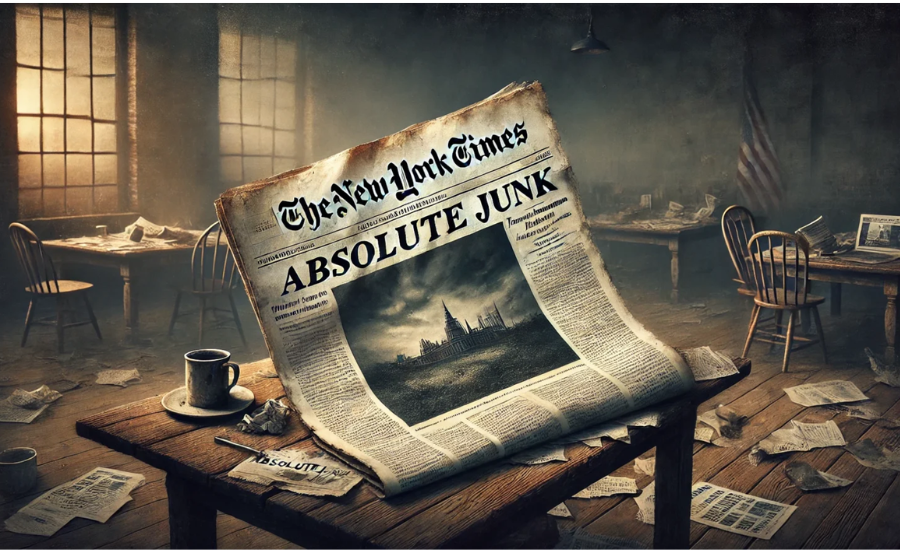
- Stress Relief: Engaging in crossword puzzles can serve as a therapeutic escape from the pressures of daily life. The focused nature of solving puzzles can provide a calming, meditative experience, allowing you to unwind and de-stress. Taking time to immerse yourself in a puzzle can be a fulfilling way to recharge your mind and spirit.
- Social Interaction: Crosswords can foster social connections by encouraging collaboration and discussion. Sharing a puzzle with friends or family members can lead to enjoyable bonding experiences, as you work together to decipher challenging clues. Engaging in crossword-solving as a group can also spark conversations, laughter, and shared triumphs, creating lasting memories.
- Sense of Accomplishment: Completing a crossword puzzle offers a unique sense of achievement. Overcoming challenges and successfully filling in the grid provides a boost of confidence and satisfaction. This sense of accomplishment can positively impact your mood and motivate you to tackle new challenges in other areas of your life.
Building Crossword Skills From Beginner To Pro
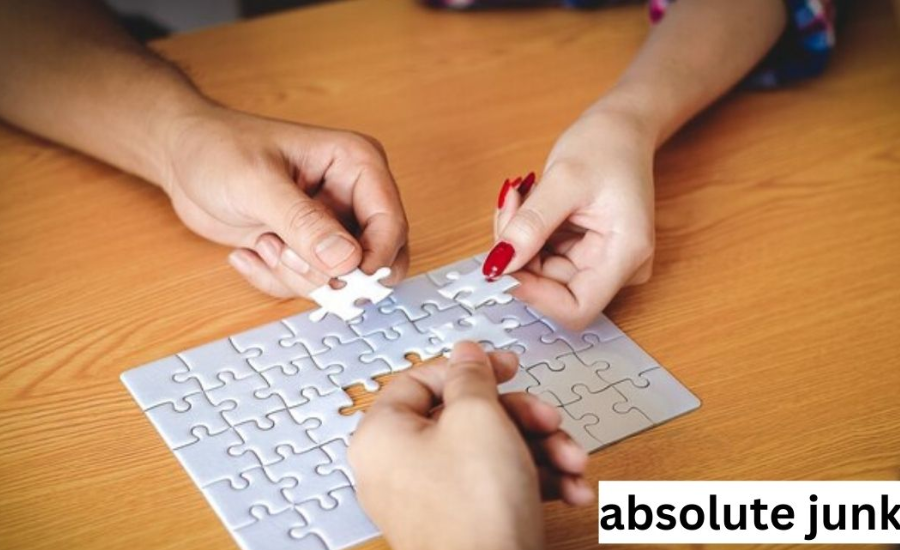
For those eager to transition from casual crossword solvers to proficient puzzlers, adopting a strategic approach is essential. Here are some effective strategies to help you sharpen your skills and enhance your crossword-solving abilities:
- Practice Regularly: The key to becoming a proficient solver lies in consistent practice. Regularly working on puzzles exposes you to different styles and formats, helping you become familiar with the unique logic behind various clues. Set aside dedicated time each week to tackle crosswords, gradually increasing the difficulty level as you gain confidence.
- Expand Your Vocabulary: A robust vocabulary is crucial for crossword success. To enhance your word bank, read widely across various genres, including fiction, non-fiction, newspapers, and magazines. This diverse reading experience will introduce you to new words, phrases, and cultural references that frequently appear in crossword clues, enabling you to recognize and utilize them more effectively.
- Leverage Cross-Referencing: When faced with challenging clues, don’t hesitate to utilize cross-referencing to your advantage. Intersecting answers often provide essential letters that can help unlock a difficult clue. By filling in letters from known answers, you can gain insights that lead you to the correct solution, making it easier to navigate more complex puzzles.
- Stay Informed: Keeping up with current events, pop culture, and historical references is vital in the crossword world. Many clues are inspired by recent happenings or well-known figures, so staying informed can give you a significant advantage. Consider following the news, watching popular shows, or reading up on notable events to ensure you’re equipped with the knowledge needed to tackle contemporary clues.
- Join Puzzle Communities: Engaging with others who share a passion for crossword puzzles can greatly enhance your learning experience. Joining puzzle communities or forums allows you to connect with seasoned solvers who can offer valuable tips, share their experiences, and provide support when you encounter particularly tricky clues. Collaborative solving can also introduce you to new strategies and perspectives, enriching your overall puzzle-solving skills.
- Experiment with Different Formats: While honing your skills with standard crosswords, don’t shy away from exploring various puzzle formats, such as cryptic crosswords or themed puzzles. Each type presents its own challenges and can help you develop new problem-solving techniques. This exploration can keep the puzzle-solving experience fresh and exciting while broadening your skill set.
Facts About Absolute Junk Nyt
- Historical Roots: The first known crossword puzzle was created in 1913 by Arthur Wynne, a British journalist. It was published in the New York World newspaper and was originally titled “Word-Cross.”
- Cultural Phenomenon: Crosswords have become a global pastime, with variations found in many languages and cultures. The New York Times Crossword is considered one of the most prestigious, often featuring themed puzzles on specific days.
- World Record: The fastest time to complete a standard crossword puzzle is just over 1 minute and 30 seconds! This record was achieved by a professional puzzler and highlights the incredible skill and speed of expert solvers.
- Cryptic Crosswords: While standard crosswords use straightforward clues, cryptic crosswords employ wordplay, anagrams, and puns, making them particularly challenging. These puzzles are especially popular in the UK and can take much longer to solve.
- Penny Press Influence: The rise of crossword puzzles coincided with the expansion of the penny press in the early 20th century, making them accessible to a wider audience. They quickly became a staple in newspapers, contributing to their popularity.
- Puzzle Competitions: Crossword competitions are held worldwide, with events like the American Crossword Puzzle Tournament attracting hundreds of participants each year. These competitions often feature challenging puzzles designed by renowned constructors.
FAQs About Absolute Junk Nyt
Q. What is a crossword puzzle?
A: A crossword puzzle is a word game consisting of a grid of squares, where players fill in words based on given clues. The words intersect at shared letters, creating a network of answers that must fit both horizontally and vertically.
Q. How do I get better at solving crossword puzzles?
A: To improve your crossword-solving skills, practice regularly, expand your vocabulary through diverse reading, leverage cross-referencing with intersecting answers, stay informed about current events and popular culture, and engage with crossword communities for tips and support.
Q. What are some common types of crossword puzzles?
A: The most common types include standard crosswords, cryptic crosswords, themed puzzles, and variety puzzles (which can have unique formats or rules). Each type offers different challenges and requires different solving techniques.
Q. How do I approach difficult clues?
A: When faced with challenging clues, start by filling in answers you are confident about, look for cross-references that provide intersecting letters, break down the clue for potential wordplay, and consider alternative meanings or synonyms.
Q. Are there any strategies for beginners?
A: Beginners should focus on easier puzzles, familiarize themselves with common crossword terms and abbreviations, build their vocabulary through reading, and gradually work up to more challenging puzzles as their skills improve.
Q. What is the difference between a regular crossword and a cryptic crossword?
A: Regular crosswords typically use straightforward clues that directly lead to answers. In contrast, cryptic crosswords use wordplay, anagrams, and other puzzles with clues, requiring solvers to think more creatively and outside the box.
Q. How often is the New York Times Crossword published?
A: The New York Times publishes a daily crossword puzzle, with a more challenging version appearing on Wednesdays and a themed puzzle on Sundays. There is also a mini crossword available each day.
Q. Are there crossword puzzle competitions?
A: Yes, there are various crossword competitions, with the American Crossword Puzzle Tournament being one of the most well-known. These events feature challenging puzzles and attract hundreds of participants who compete for prizes.
Q. Can crossword puzzles be solved online?
A: Absolutely! Many websites and apps offer digital versions of crossword puzzles, allowing solvers to enjoy them on various devices. Some platforms also provide hints and solutions to help you learn as you solve.
Q. Do crossword puzzles have any cognitive benefits?
A: Yes, regularly solving crossword puzzles can improve cognitive functions, including memory, problem-solving skills, and vocabulary.
Conclusion
Crossword puzzles are more than just a delightful way to pass the time; they offer a plethora of cognitive, social, and emotional benefits. Engaging with these puzzles can sharpen your mind, expand your vocabulary, and provide a fulfilling sense of accomplishment. Whether you’re a casual solver or an aspiring expert, incorporating regular practice, staying informed, and connecting with fellow enthusiasts can enhance your experience and elevate your skills. As you navigate the world of crosswords, remember that each puzzle presents an opportunity not just for entertainment but also for personal growth and mental stimulation. So, pick up a pencil, embrace the challenge, and enjoy the many rewards that crossword puzzles have to offer!
Engage with high-quality content that supports your goals. Discover Thrill


